11 Outdoor Careers & Where To Find Outdoor Industry Jobs
Here are 11 outdoor careers that will get you out of the cube and into nature, plus tips on how to find outdoor industry jobs.
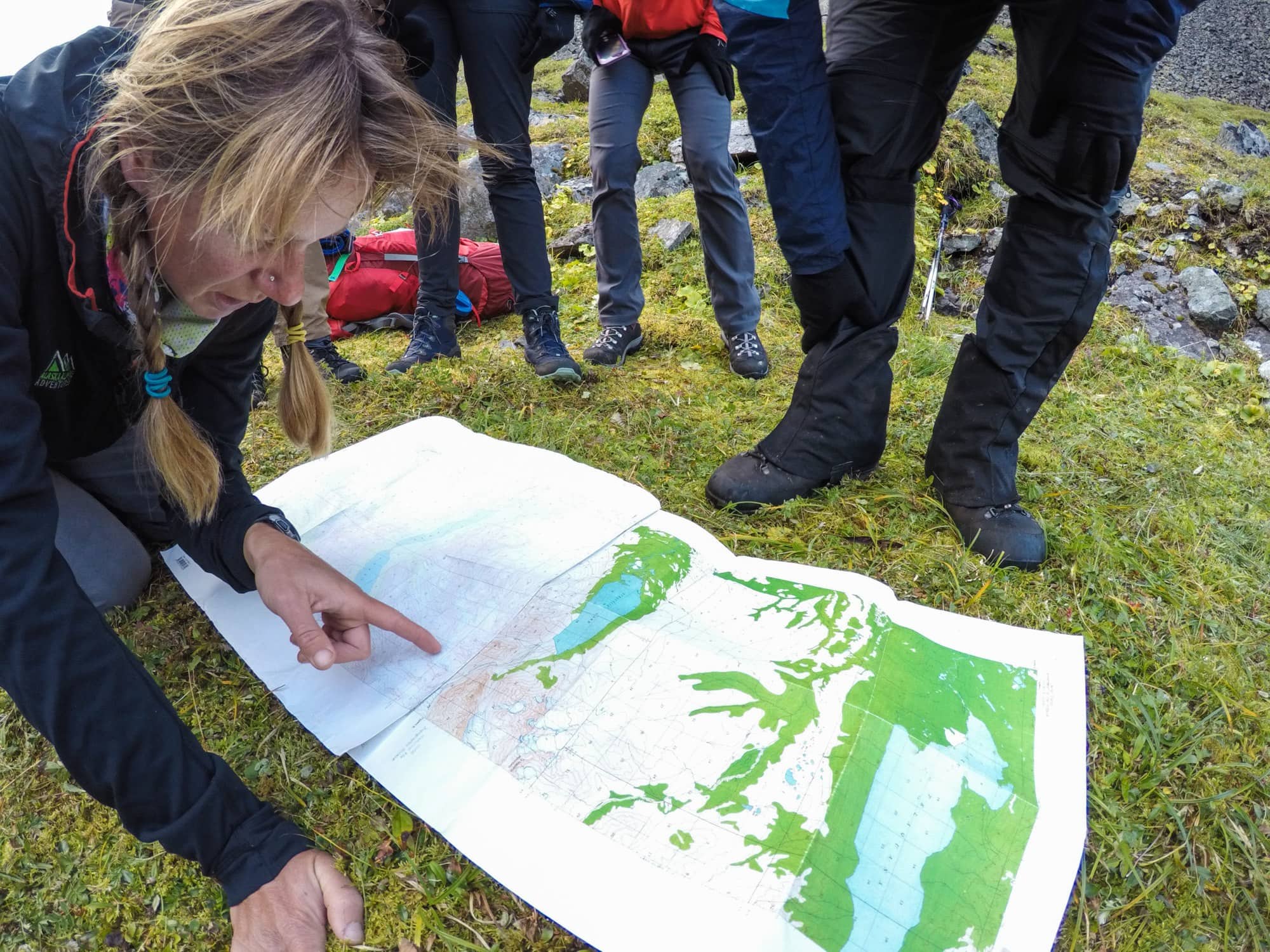
Dreading the cube and wishing you had an outdoor career? We’ve all been there. You’re out in the mountains enjoying a weekend of hiking and camping when you realize Monday morning is looming and soon you’ll have to get back to the office.
More than six years ago, I found myself in this exact position. I was working in Washington DC as a lobbyist for a big NGO. I lived in a suit and heels and spent my days either behind my computer or schmoozing with people in Congress. Then one day, I was out for a bike ride, and I KNEW I needed to make a change. I wanted a career where I could be active at work with the outdoors being part of my everyday routine. A few months later, I quit my job, learned how to build a website, and transitioned into life as a full-time travel blogger.
Over half of Americans describe themselves as unhappy at work. You don’t have to be one of these people. If you are itching for a change and are craving more time outside in your daily life, there are a number of outdoor industry jobs that might fit the bill.
In this post, learn about the best outdoor careers where you can connect with nature and other outdoor enthusiasts as part of your 9-5.
11 Outdoor Career Path Ideas
1. Park Ranger
Park rangers come from a variety of backgrounds and serve the Parks in a number of roles including law enforcement, interpretation, science, or other fields. Many park rangers begin as summer interns or seasonal science technicians and most positions require a college degree or specialized training. One perk of being a ranger is housing is often provided, meaning you might get to spend your summers working and living in places that most people could only dream of. Government park jobs also come with good benefits like health insurance and paid time off.
You’ll need to decide what type of park you’d like to work in (State, National, County, etc). If you want to work for the National Parks Service (NPS) you can research positions at USAJOBS.gov. Landing an outdoor career with the National Park Service takes a lot of persistence and patience. The application process is daunting and will require you to dig deep into your work and educational background. Also keep in mind that National Park Ranger positions are often seasonal, so you’ll need to find other work in the off-season.
Most states also maintain “Parks & Recreation Division” websites where you can find current job listings for state and local park ranger positions and other related roles.
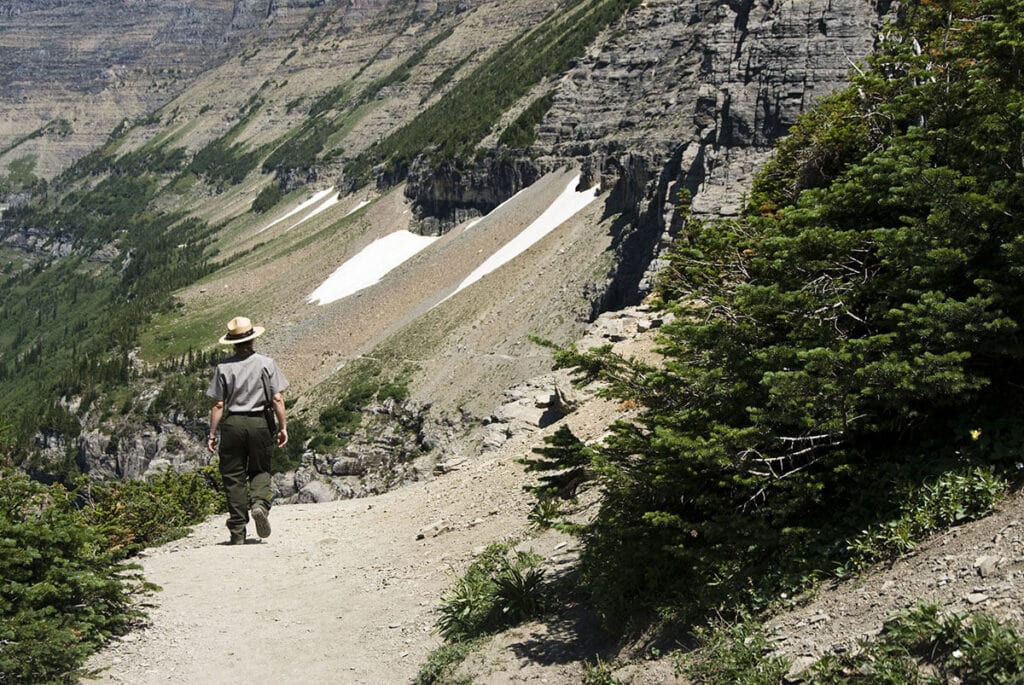
2. Outdoor Gear Company Positions
If you’re a gear junky, then working for an outdoor gear company might be a good option for you. Keep in mind, you don’t have to be a product designer or engineer to work for a gear company. Companies like Patagonia, REI, The North Face, and Smartwool all need graphic designers, human resource staff, sales reps, and social media gurus in their offices too.
While you might have an “office job” that involves sitting indoors for extended periods of time, outdoor gear companies are known to offer healthy work-life balance incentives, providing more time to get outdoors than traditional office environments.
Pick a location you’re interested in living and working and look into outdoor companies headquartered there. Then narrow it down by the type of outdoor gear company you’d like to work for (apparel, ski equipment, bicycles, etc).
3. Outdoor Travel Blogger
If you want to be your own boss, pursuing an outdoor career in freelance writing or blogging can provide a lot of flexibility. To be a successful blogger, you’ll need more than writing skills, though. You’ll also need to learn basic camera skills, have a knack for social media and websites, and have an unparalleled drive. I started this blog 6 years ago and now I’m making more than double what I made in my last job. So it’s definitely possible to make a good living as a blogger, but you have to be ready to hustle and it won’t happen overnight.
How do you make money as a blogger? There are a few major income streams I rely on. These include, but are not limited to, affiliate partnerships, sponsored content, banner ads, destination campaigns, YouTube revenue, and freelance writing.
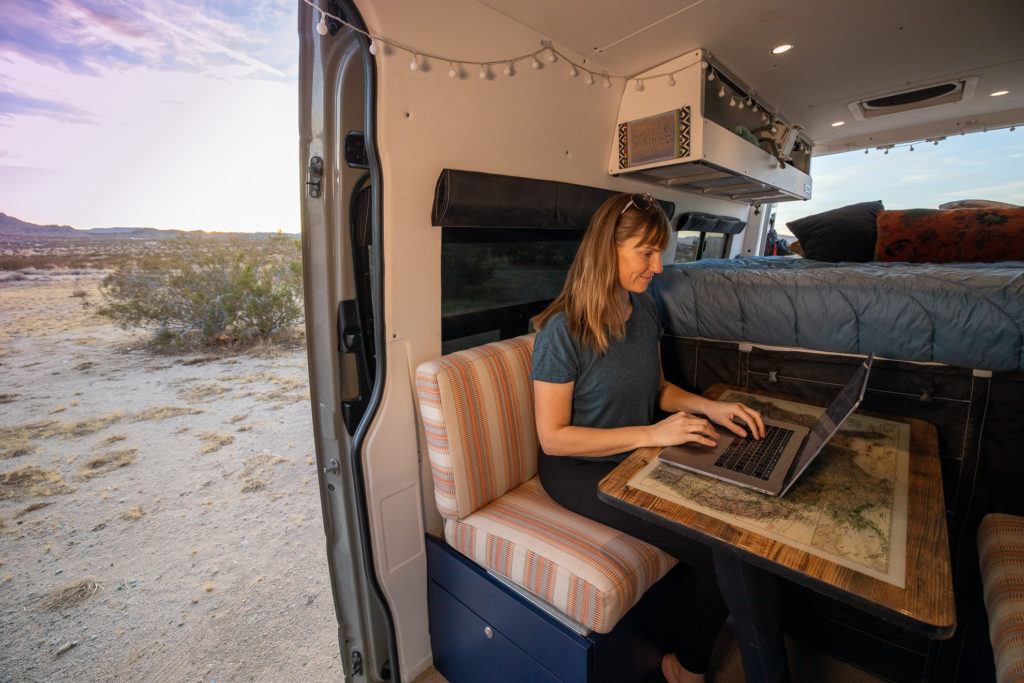
4. Outdoor Photographer
Being an outdoor photographer appears to be one of the more glamorous outdoor careers, but like blogging, it can be a grind. With Instagram and the ability to get your work seen along with free stock photography sites, it is an extremely competitive workspace. To stand out as an outdoor photographer, you’ll need top-notch photography and editing skills.
You’ll also need to be creative and work for your shots. Don’t take the same photograph in the same location that has already been done thousands of times on Instagram. You’ll need to get up early and stay late to get the best light. Then you’ll need to build up a social media presence and have a killer-looking website that you can use to pitch outdoor brands and destinations that you want to shoot for. You should also learn some basic video skills.
If you need to develop your skill set, think about taking a photography course or workshop. A few years back, I participated in the Adventure Photography Summit in Jackson Hole, which challenged me to take very different photographs than I was used to.
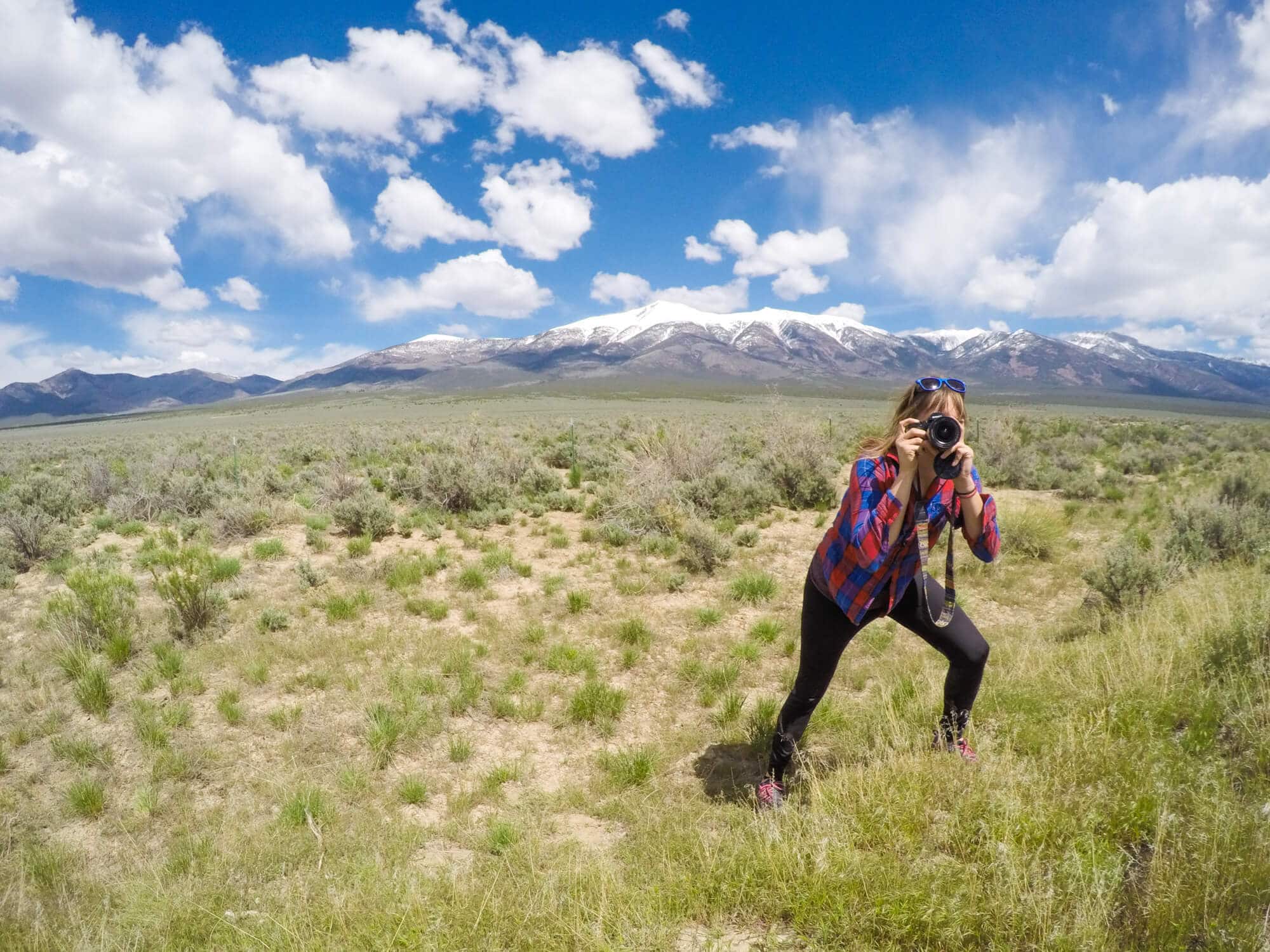
5. Outdoor Education
Want to pass on your love for the outdoors to younger generations? Working in outdoor education is both a challenging and rewarding position that has the potential to create an entire generation of vocal environmental proponents. Wilderness therapy programs for troubled teens are also emerging all over the country, and these kinds of instructors can make a big difference in kids’ lives.
Working in outdoor education, however, doesn’t necessarily mean working with kids. There are plenty of companies that offer outdoor education classes for adults, so don’t rule out this job if working with kids is not up your alley.
Colleges now offer outdoor education degrees to those of you who decide early on that this is the path you want. But what about adults transitioning to a new career? There are a lot of different programs where you can build the leadership skills you need to be an outdoor educator. A few to check out are:
- NOLS (the National Outdoor Leadership School)
- Outward Bound
- The American Alpine Institute
- National Center for Outdoor & Adventure Education
6. Outdoor Guide
If you’re a people person, have a passion for the outdoors, and have skills that you want to share with others, guiding is a great outdoor industry job that will take you to places most people pay a lot of money to experience. Similar to park rangers, there are all types of tour guides from extreme adventure guides (think mountaineering) to outdoor travel guides (think trekking vacations).
Start by thinking about where you would be interested in guiding and what type of guide you would like to be, then research companies that offer those types of tours in the areas you’re interested in.
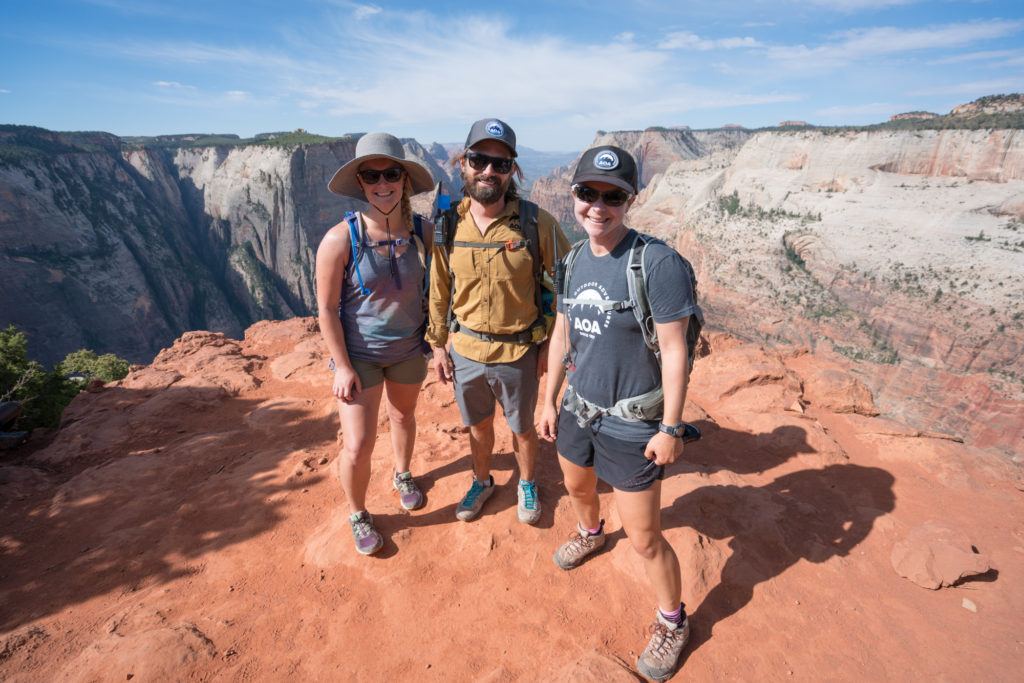
7. Conservation Advocate / Non-Profit Work
If you’re passionate about making a difference by protecting our public lands, wildlife, or natural resources, then non-profit work is a gratifying outdoor career to pursue. Check out our post on the top environmental groups you should know about for some ideas.
All of these websites have links to “About Us” pages where you can often find a section on “Careers” or “Employment Opportunities.” While not all non-profit work will have a big field-based component, certain types of non-profits do offer the chance to get outside – like trail volunteer organizations.
8. National Park Concessionaire Positions
Landing a job as a National Park ranger can be difficult, especially in some of the more popular parks. If you don’t have the background to be eligible for a ranger position, you can still get a job working for one of the National Park concessionaires. These are the companies that run the hotels, restaurants, and other services inside park boundaries.
Xanterra, one of the biggest concessionaires, always has full-time and part-time job postings on their career page. There are also smaller, park-specific concessionaires with job opportunities ranging from mountain bike guides to sea cave kayak guides.
Generally, on each NPS webpage, there is a listing of park concessionaires operating within the park. Know that the reputation of each concessionaire (as employers) varies, so do your homework before committing.
9. Work at a Ski Resort
If you’re a self-proclaimed ski fanatic, why not make it a job? My boyfriend Ryan spent years working at Alta Ski Area, and he and everyone else that works up there are some of the happiest people I know. How could you not be when this is your office? Whether you want to work on the lifts, with ski patrol, as a ski school instructor, or in hospitality, there are tens of thousands of seasonal positions open every winter both here in the US and abroad.
Sometimes room and board are included with the job (although the level of pay generally reflects this), but that means that all the money you make goes into your pocket for when summer rolls around.
If you’re nervous that your ski skills aren’t strong enough, you shouldn’t worry about that. Getting a job at a ski resort is one of the quickest ways to get better as a beginner skier and discounted or free lessons are also a common perk of the job.
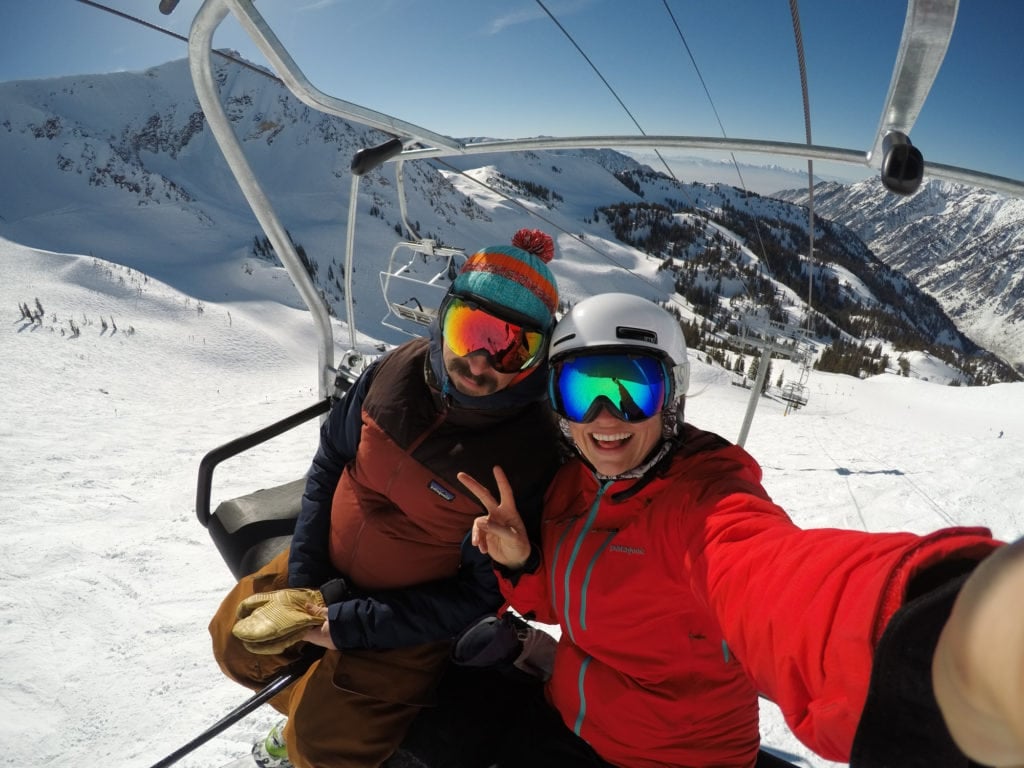
10. Work for a land management agency
There are a number of land management agencies throughout the US that hire field staff for research studies, restoration, resource assessment, fire management, and more. Some of these positions will require a college or graduate degree, but other outdoor jobs – including temporary or seasonal work – do not. There are usually numerous land management positions open across the US, so decide on where you want to work and search accordingly.
Below is a list of land management agencies that often have open positions:
- United States Forest Service
- Bureau of Land Management
- U.S. Fish and Wildlife Service
11. Teach SCUBA Diving
Back in the day, I was an Advanced PADI Open Water SCUBA Instructor. I shared my passion for the ocean with beginner divers and got to spend 7 months living in and exploring Thailand while working at a local dive shop. If you want to be a SCUBA Instructor, you need 100 logged dives under your belt.
You’ll want to start by getting your rescue and divemaster certification, which will allow you to work and lead dives in dive shops all over the world. Those dives then count towards your 100 logged dives. Being a SCUBA Diving instructor isn’t the most lucrative position (consider working where tipping is standard), but you’ll spend your days doing what you love.
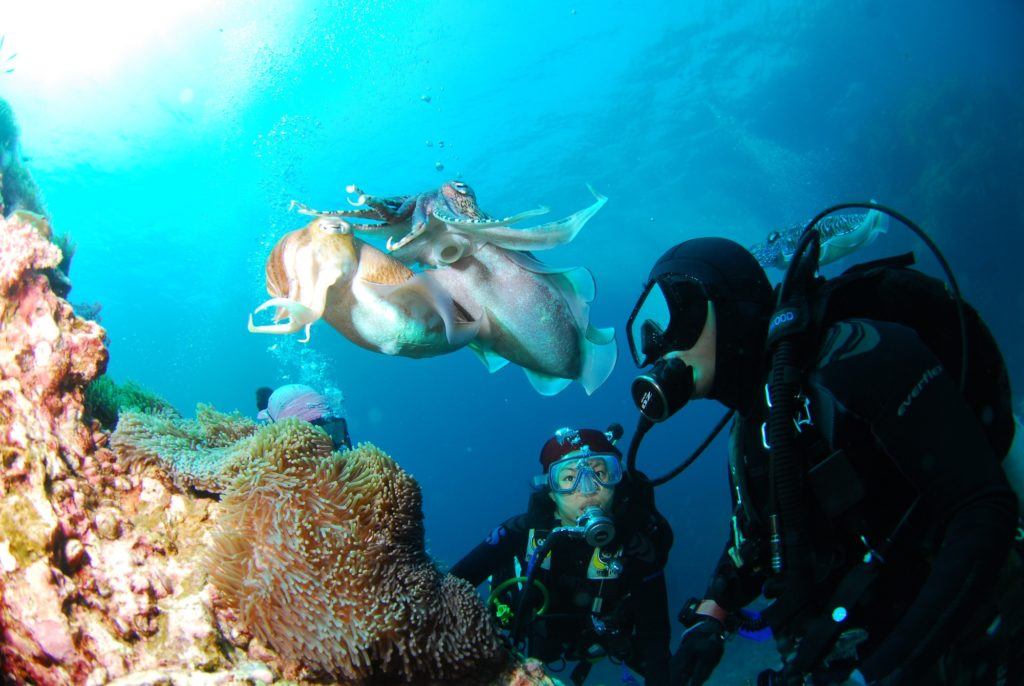
Where to find outdoor industry jobs
Basecamp Outdoors
Basecamp Outdoors is a community of outdoor industry employers and employees. It was founded by Ali Carr, a 15+ year veteran in the outdoor industry who saw the need for a more dynamic and interactive approach to searching for outdoor jobs and careers. Through their newsletter, podcast, and Facebook group you can learn more about outdoor career opportunities and find your dream job. We’ve posted a few job openings there ourselves!
Diversify Outdoors
Diversify Outdoors is a coalition of social media influencers, bloggers, activists, and entrepreneurs who are on a mission to increase diversity in the outdoors. They have a job board filled with opportunities from brands and businesses that are also committed to promoting diversity and equity in the outdoors.
Cool Works
From dude ranch hands to summer camp counselors, Cool Works lists dozens of amazing outdoor jobs for adventurers. Many of the job postings are seasonal and you can narrow your search by state, season, outdoor career category, and more.
Camber Outdoors
Camber Outdoors is a nonprofit organization that works with over 200 outdoor industry businesses and brands to implement best practices in Workplace Diversity, Equity, and Inclusion. Their job board features careers with the brands they work with including REI, Black Diamond, Arc’teryx, and many more.
Get Outdoor Jobs
Get Outdoor Jobs is another great resource for finding careers in the outdoor industry – their website is super easy to navigate and they have a weekly newsletter that goes out on Fridays.

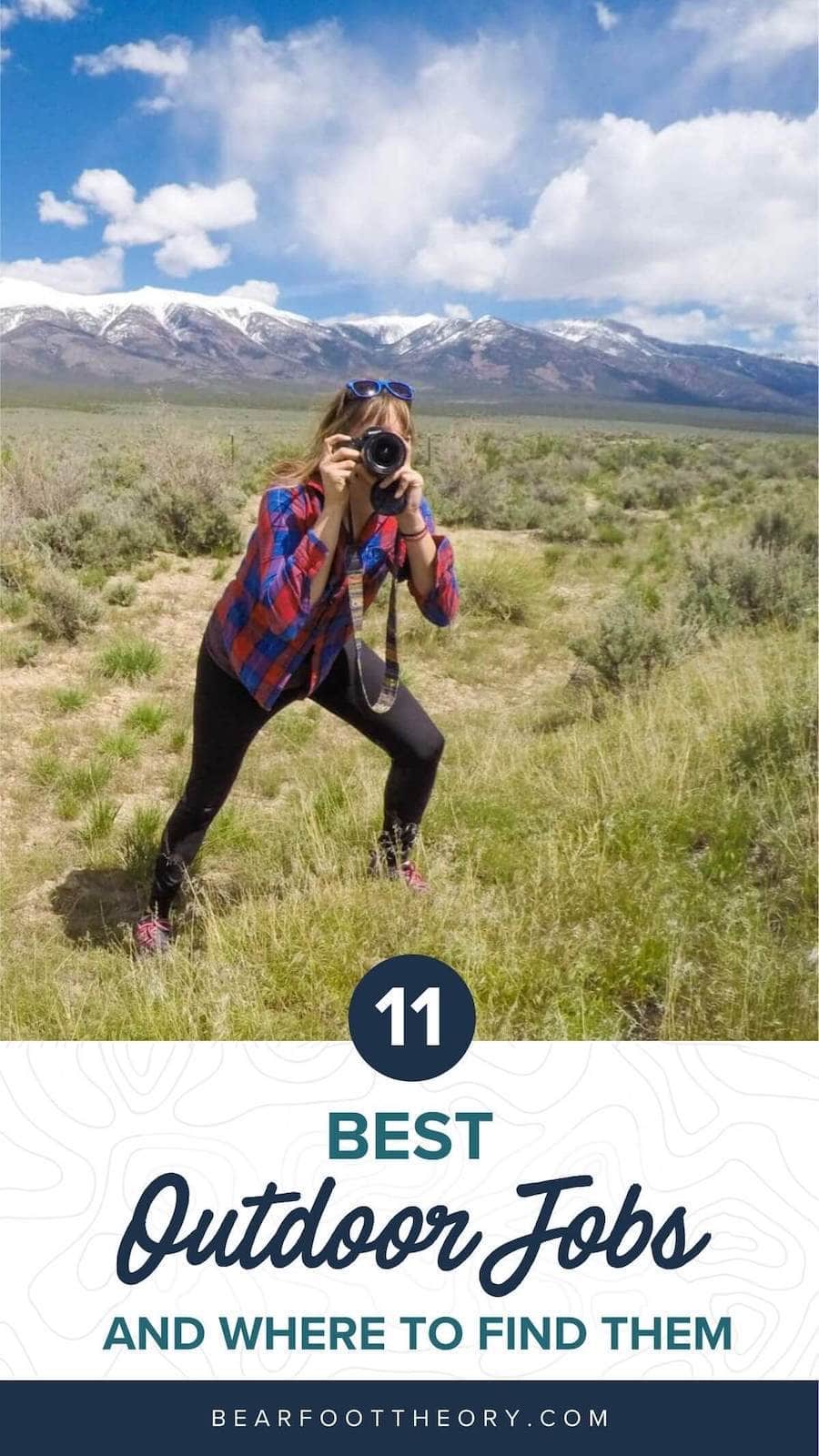
As a former NPS park ranger, I have to clarify: the VAST majority of ranger jobs are seasonal. This means you work 3-9 months at a time with no guarantee of the next job. You will have to reapply for the same job the following year and/or every time your season is up. It is not uncommon to send out 50+ applications per season. Seasonal rangers also do not receive any health insurance benefits. Permanent jobs are extremely hard to come by and most often you will have to go to a random tiny park and move around for years until you get to work at a “good” park.
Thanks, Sarah, for your insight. That’s so neat to hear you worked for the parks. Glad to hear you agree with our mention of “persistence & patience” to land a job with NPS. For some, it’s a dream job! Hope you enjoyed your time.
What a great post. My first job with the U.S. Forest Service was working on a trail crew in the Frank Church Wilderness, in Idaho. What a dream job packing out into the wilderness with a 7ft crosscut saw for 10 days. I love my current USFS job but this was by far the best one. It did take an incredible amount of persistence but one that paid off, as I’m still with the USFS. One thing that has changed since I was a seasonal, is that seasonal employees receive health benefits during their time of employment.
USFS and the other land management agencies offers all kinds of seasonal jobs: wildland fire, recreation, fisheries crews, fire lookout, etc.
Like you, “back in the day” I was an Advanced PADI Open Water SCUBA Instructor, and worked in a Northern California dive shop for 3 years as both a store manager and instructor.
Pros:
I could join in on any of the planned company dives and pursue my passion for UW Macro photography pretty much every weekend.
Access to the latest dive equipment/cameras at a discount.
Opportunities to share dive experiences with customers and co-workers.
Travel to worldwide dive destinations via the company, again at a discount.
Opportunity to work in prime tropical and other interesting dive destinations.
Cons:
Low pay.
Long hours.
Re: working in prime tropical dive destinations – even lower pay and longer hours. (Hey, you’re working in paradise; get over it!)
Overall, it was a good experience for someone in his 20’s.
Hi ,
My career has been rooted in outdoor education and adventure education since the 80’s. I am one of the few of my colleagues that have stuck it out and have been fairly successful in this field even published in academia a few times. I am most notable as a leader in the girls outdoor adventure program niche.
I have chosen lifestyle over money and have no regrets during my 30 years in this field. My intention here is to express one of many challenges in outdoor pursuits as a career. In this culture, the work of outdoor guides and instructors is still not taken seriously and often seen as something one does during your college years. And because of this, the salary and benefits still are not enough money to pay for rent and basic needs like health care. I find it ironic that we as guides and instructors are hired to keep people safe by using our judgement and skills to lead the group members. This is a huge responsibility and the pay should reflect that level of responsible- we are responsible for people’s lives! There is a long tradition in other countries such as Europe, New Zealand and Australia that pay their outdoor professionals well.
The way the system is set up here in the USA , unless it changes, pursuing an outdoor professional field will continue to be short lived for most. And will only be accessible for the middle to upper middle class citizens.
That said, go for it! I do miss being in the field as at some point the only roles that pay a livable salary are the administrative roles.
Check out my blog: http://www.itsaboutthriving.com
Adventure onward!
Priscilla McKenney
Thanks, Priscilla for the rad response and for sharing your blog. Best wishes!
Malakye.com is a great one to add to this list!
Oh yes! Thanks for chiming in.